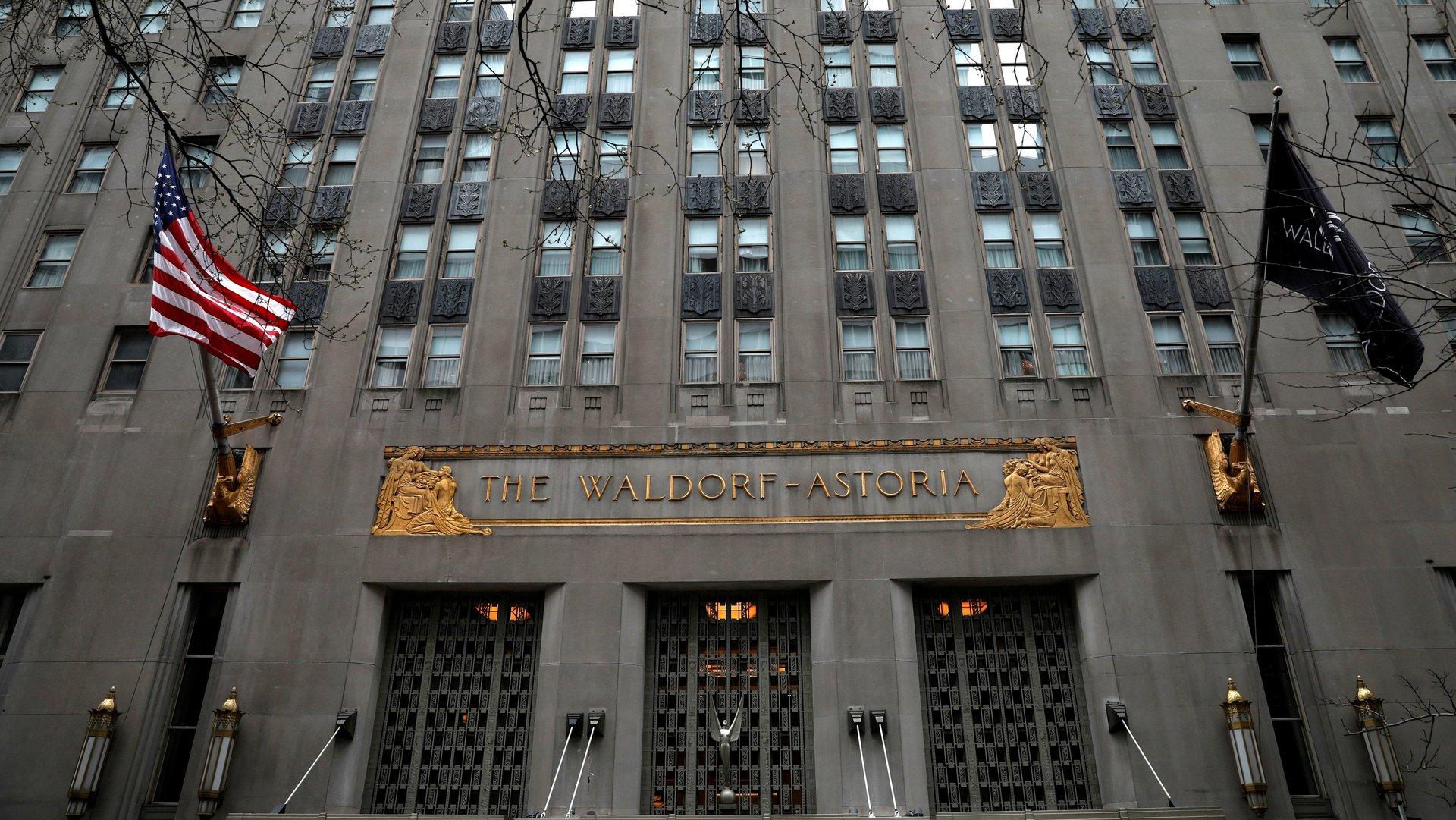New York’s Waldorf Astoria is now controlled by the Chinese government
One of the symbols of New York luxury is now in the hands of Beijing.


One of the symbols of New York luxury is now in the hands of Beijing.
The Chinese government has taken control of Anbang Insurance Group, a Beijing-based conglomerate that has aggressively acquired overseas companies and properties including the Waldorf Astoria in New York City. The move highlights the complexities the US faces as more and more Chinese companies—often with opaque ownership structures—attempt to purchase stateside companies. An ostensibly private holding can, seemingly overnight, change status.
In a statement (link in Chinese) Friday (Feb. 23), the China Insurance Regulatory Commission (CIRC) said it was acting to protect insurance product consumers because Anbang was in danger of insolvency. A government work group will control Anbang for one year, until Feb. 22, 2019. It’s not clear what will happen to the company’s ownership afterwards, though one possibility is a government-orchestrated sale of a stake in the company. The company’s board of directors and board of supervisors will step down and make way for members of the working group, and the company will continue to operate as normal, the regulator said. It added that Wu Xiaohui, Anbang’s chairman, is being prosecuted on suspicion of committing “economic crimes.”
The takeover means that the Waldorf Astoria, which Anbang purchased from Hilton Worldwide in October 2014 for $1.95 billion, is now directly under the Chinese government. The government move should also see properties under Strategic Hotel and Resorts, which Anbang purchased in 2016, come under the control of the working group. These include the JW Marriot Essex House in Manhattan and the Four Seasons Hotel in Washington DC, among others. Representatives for Anbang, the Waldorf Astoria, and Strategic Hotel and Resorts did not respond immediately to Quartz’s requests for comment.
Anbang came under scrutiny several years ago as regulators began to question the true ownership behind the company, which was buying up global properties aggressively. An investigation by the New York Times revealed (paywall) that the group’s byzantine structure once consisted of shareholders all connected to chairman Wu, a former car salesman who had married into the family of Deng Xiaoping. Wu himself, however was not listed as a shareholder. The company claims over $300 billion in assets.
Throughout 2016 and 2017, Anbang suffered a string of setbacks in its US acquisition attempts—most notably a $14 billion bid to buy Starwood Hotel and Resorts that fell apart in 2016 when the hotel chain demanded more transparency about Anbang’s ownership.In June 2017, Wu Xiaohui was suddenly detained by Chinese authorities. His fall from grace came soon after a broader crackdown on capital outflows (paywall) from Beijing.
The move will likely heighten US concerns about China’s overseas shopping spree. Opaque ownership structures are what caused regulators to raise their eyebrows in response to Anbang’s investments, as well as over attempted purchases by travel conglomerate HNA and Canyon Bridge Capital Partners. The speed at which the Chinese government has taken control of Anbang lends weight to fears that regardless of who nominally owns a Chinese company, ultimately, it’s Beijing that calls the shots.
Zheping Huang contributed to reporting.